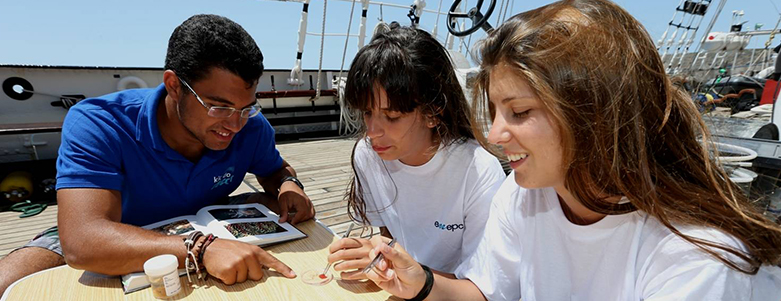Ocean Literacy means to understand the Ocean's influence on us and our influence on the Ocean. More than just raising awareness, it is also to encourage all citizens and stakeholders to have a more informed and responsible behaviour towards the Ocean and its resources. Ocean Literacy goes beyond knowledge. It is about using that knowledge to communicate, act and decide, understanding that we have individual and collective responsibilities towards the Ocean.
An ocean-literate person:
- Understands the importance of the Ocean to humankind
- Communicates about the Ocean in a meaningful way
- Makes informed and responsible decisions and actions regarding the Ocean and its resources
The Ocean Literacy framework adopted in Blue School combines the IOC-UNESCO Ocean Literacy Multiperspective Approach and the seven Ocean Literacy principles, thus assuming an inclusive and holistic approach, more readily adaptable and adoptable in different geographic, historic and cultural settings. Ocean Literacy can, thus, be understood through different perspectives and not only from an exclusively scientific point-of-view. This is usable by all actors that promote Ocean Literacy, inside or outside formal educational contexts.

In this field, the Blue School coordination developed a paper reflecting on the evolution of Ocean Literacy, in Portugal and in the World, and on the role of the Blue School programme in promoting attitudinal changes towards the Ocean. It was published in September 2020 as a Working Paper from the IPRI Institute – Nova University of Lisbon.
Read the article “Ocean Literacy: From the Principles to the Ocean Decade” (PT).


